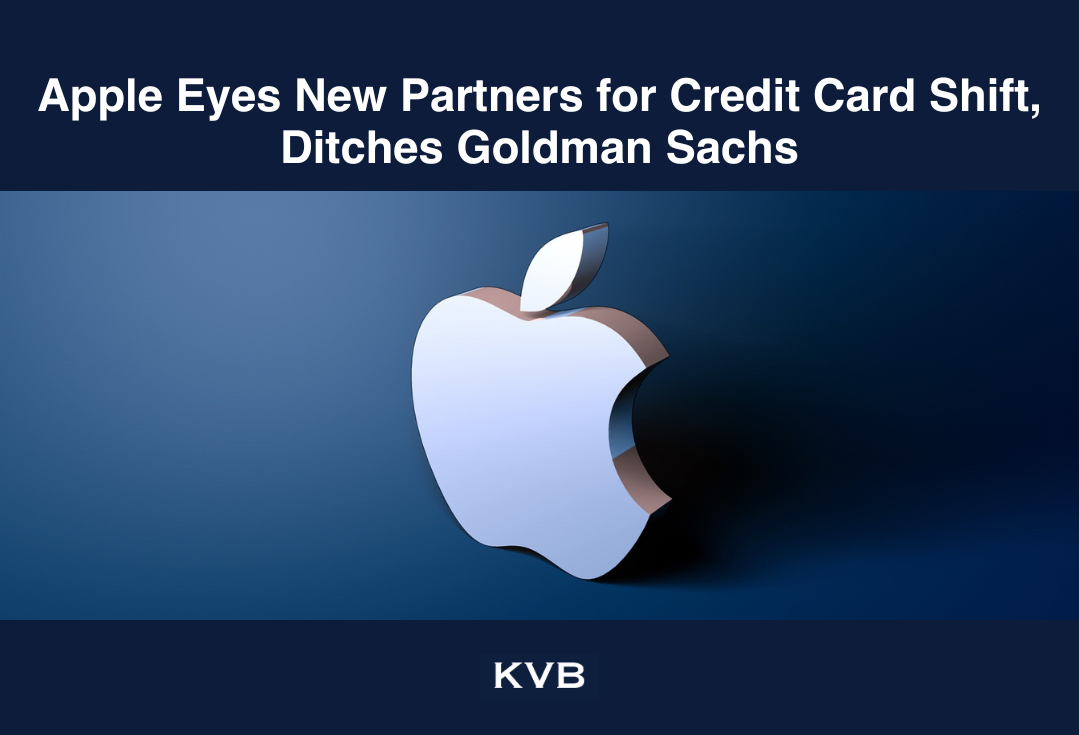


In a move that could reshape the landscape of financial services, Apple Inc. is in discussions to transition its credit card operations from Goldman Sachs to two major financial institutions: Barclays and Synchrony. The discussions, which have been ongoing for several months, mark a pivotal shift in the tech giant's strategy as it seeks to further expand its financial services ecosystem and provide more seamless payment options for its users.
The Apple Card, launched in collaboration with Goldman Sachs in 2019, was designed as a simple, transparent, and user-friendly alternative to traditional credit cards, offering rewards, no fees, and integration with Apple Pay. Despite the initial success and popularity of the Apple Card, sources close to the matter have revealed that Apple is now exploring a change in partnerships due to strategic business reasons, including evolving consumer needs and the desire for a more diversified and flexible approach to financial services.
Barclays, a global leader in banking, and Synchrony, a major player in consumer financial services, are both vying for the opportunity to take over the Apple Card operations. While the final decision has not yet been made, both companies are seen as strong candidates due to their extensive experience in credit card services and their ability to offer a range of financial products that could complement Apple’s vision for the future of payments.
Apple’s decision to explore alternatives to Goldman Sachs comes at a time when the company is increasingly focused on expanding its financial services beyond hardware and software, integrating them more deeply into the day-to-day lives of its customers. This shift aligns with Apple’s broader strategy to increase its services revenue, which has become an increasingly important part of the company’s business model.
Industry experts speculate that the transition to Barclays or Synchrony could lead to an evolution of the Apple Card product, with new features designed to appeal to a broader range of consumers. For instance, Barclays has a strong track record of developing co-branded credit cards, while Synchrony has a history of offering innovative financial products tailored to specific customer needs, including a strong presence in retail credit offerings.
Apple’s potential partnership with these firms could enable the tech giant to offer more personalized credit solutions, integrating advanced data analytics and artificial intelligence into the card’s rewards system, fraud prevention measures, and spending insights.
Furthermore, both Barclays and Synchrony have significant experience working with Apple Pay, which could make the transition smoother and more seamless for Apple Cardholders. Apple Pay, which allows users to make payments using their iPhones, iPads, and Apple Watches, has seen massive growth in recent years, and Apple is keen to continue expanding the service's footprint across the globe.
For Goldman Sachs, the potential loss of the Apple Card partnership represents a blow to its consumer banking ambitions. The investment bank has been trying to grow its consumer banking business through partnerships like the one with Apple, but the collaboration has faced challenges. Goldman Sachs has faced scrutiny over its handling of Apple Card customer service issues, such as complaints about credit limit decisions and concerns about transparency in its rewards program.
In light of these developments, many analysts believe that the move to sever ties with Goldman Sachs may be driven by a desire for greater control over the Apple Card’s business operations and customer experience. Apple has built a reputation for creating sleek, user-friendly products, and its decision to partner with financial institutions that align with its commitment to quality and customer satisfaction may be an effort to ensure the Apple Card evolves in a way that better suits the tech company’s long-term goals.
The news of Apple’s negotiations with Barclays and Synchrony has already had a ripple effect on the financial markets. Shares of both Barclays and Synchrony saw upticks on the news, as investors responded positively to the possibility of a lucrative partnership with one of the world’s most valuable companies. Meanwhile, Goldman Sachs’ stock experienced a slight dip, as analysts ponder the potential financial implications of losing the high-profile partnership.
Despite the ongoing discussions, no official announcement has been made by Apple, Barclays, or Synchrony, and it is unclear when the transition, if it happens, would take place. What is clear, however, is that the partnership shift will have significant implications for the broader financial services and payments industries, as Apple continues to push boundaries in the way consumers interact with money and manage their financial lives.
As Apple seeks to redefine the future of credit cards, it will undoubtedly be keeping a close eye on the competitive landscape, weighing the advantages and drawbacks of each potential partner. Whether the company ultimately chooses Barclays, Synchrony, or another financial institution to replace Goldman Sachs, one thing is certain:
Apple’s next move in the financial services space will be one to watch closely. With the company’s vast ecosystem of devices and services, a more integrated and enhanced Apple Card could bring new opportunities for consumers and set new standards for the credit card industry.
Derivative investments involve significant risks that may result in the loss of your invested capital. You are advised to carefully read and study the legality of the company, products, and trading rules before deciding to invest your money. Be responsible and accountable in your trading.
RISK WARNING IN TRADING
Transactions via margin involve leverage mechanisms, have high risks, and may not be suitable for all investors. THERE IS NO GUARANTEE OF PROFIT on your investment, so be cautious of those who promise profits in trading. It's recommended not to use funds if you're not ready to incur losses. Before deciding to trade, make sure you understand the risks involved and also consider your experience.
